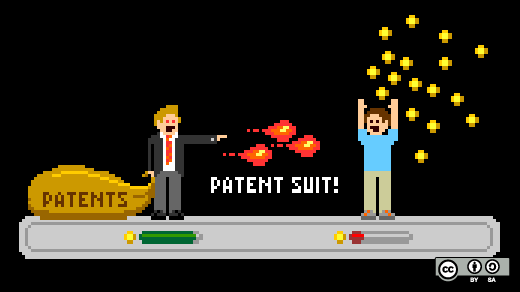Innovative software companies start each work day knowing that, no matter how careful and how ethical they are, they face a meaningful risk of being sued for patent infringement. It's like a tooth ache – painful and distracting, even when not debilitating. A major source of this pain is non-practicing entities (NPEs), which are expert at acquiring and exploiting weak software patents. While this is not hot news to the open source community, the enormous financial harm caused by NPEs is just starting to be understood.
A new paper, "The Private and Social Costs of Patent Trolls," establishes the massive scale of this harm. The authors are James Bessen, Jennifer Ford, and Michael Meurer, two of whom (Bessen and Meurer) were authors of the influential book Patent Failure. Their new paper examines the losses caused by NPE lawsuits and considers whether there is any offsetting gains.
The new paper explains that "NPEs are firms that do not produce goods," but rather "acquire patents in order to license them to others," and "derive the majority of their income from the enforcement of patent rights." The authors note that NPEs are sometimes compared to mythical trolls hiding under bridges, buying "vaguely worded patents that can be construed to cover established technologies and us[ing] them opportunistically to extract licensing fees from the real innovators." "Innovators deciding to invest in new technology have to consider the risk of inadvertent infringement as a cost of doing business," which can "decrease the incentives for these firms to innovate."
One measure of the cost of NPE lawsuits: more than half a trillion dollars. This number is the loss in market capitalization over twenty years resulting from the filing of such suits. The corresponding number for the last four years is more the $83 million per year. Software patents are the subject of as much as 94 percent of this litigation.
This enormous social cost is not offset by gains elsewhere. The authors find little evidence that NPE litigation has produced large transfers of wealth to inventors.
The paper notes that "very rarely are the defendants in these lawsuits found to have actually copied the patented technology. ... Instead they are inadvertent infringers, if infringers at all. This means that they have to anticipate the risk of future lawsuit-related losses as part of their cost of developing new technology and products. This risk is a disincentive to invest in innovation.”
NPEs obviously have not stopped all innovation, but we are starting to understand how the losses they have caused are huge. It makes one wonder: what if the half a trillion dollars lost from NPE lawsuits had been channeled into socially productive uses? How much more innovation could we achieve if we quit tolerating this incredible waste?







5 Comments